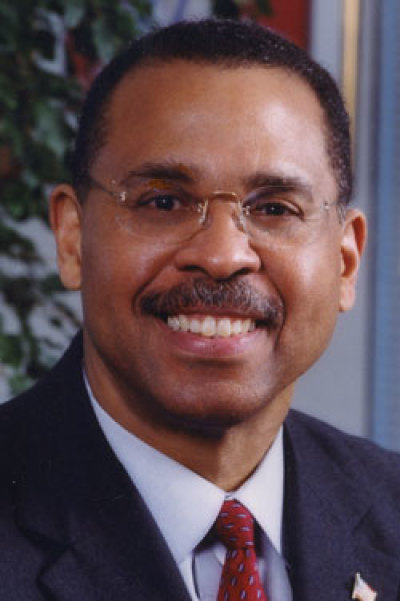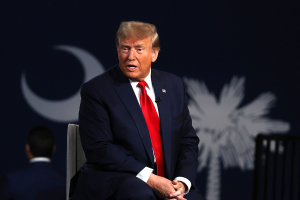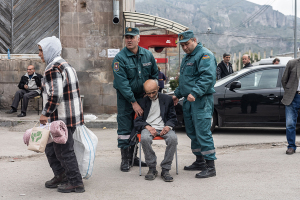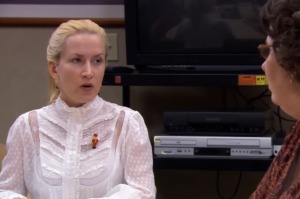Time for a Principled Policy on Iran

Almost 30 years ago, when the US was negotiating with the Soviet Union about intermediate-range nuclear weapons, President Ronald Reagan was told that the Russians like to talk in proverbs.
A writer on Russia taught him the proverb "doveryain no proveryai," which means trust but verify. It was a phrase Reagan would use many times in his dealings with Mikhail Gorbachev – and one that seems particular wise now.
As I'm writing this, the US and five other nations (the permanent members of the UN Security Council plus Germany) are engaged in nuclear talks with another adversary, Iran (towards a June 30 deadline for an agreement that will be missed). And the wisdom of the Russian proverb could not be more timely.
A little more than decade after that INF treaty was signed, the Soviet Union was no more, but in the meantime – indeed only a year after the treaty – a new threat appeared on the horizon. The theocratic regime of Ayatollah Khomenei came to power in Tehran and began to foment trouble in the entire Middle East.
Now, those chickens have come home to roost. Secretly, the mullahs in Tehran began a nuclear program, ostensibly to provide power to heat and light homes, business, and industries. But, thanks to the National Council of Resistance of Iran, the coalition of Iranian opposition movemtn and its key component, the People's Mojahedin Organization of Iran (Mek) which has kept a wary on the parts of the program that Tehran didn't want the world to know about, it became known that the nuclear program had a more nefarious goal – development of a nuclear weapon with which it could threaten all its neighbors, including Israel.
For years, the West has played Iran's game, allowing it to stall talks while moving ahead with its covert program. Finally, the West imposed economic sanctions in an effort to bring Khomenei's successor, Ayatollah Khamenei, to the bargaining table. But even that has been excruciatingly slow.
Deadlines came and went, and new deadlines were set. Demands were made and ignored, and new demands were made. Now that the effects of the sanctions are straining the mullahs' ability to keep a grip on power at home, the nuclear talks seem to be getting somewhere.
The question is: Where?
The mullahs still want to keep their nuclear development hidden from view. They want the sanctions to be lifted even before they have demonstrated compliance with any agreement and to keep driving to acquire nuclear weapons.
That brings us back to the Russian proverb.
I don't see how we can ever trust Khameini and his cohorts to keep their word. But we can insist on a plan whereby the world can verify what is going on inside Iran's borders.
I fully endorse the plan set out by the Iranian opposition leader Maryam Rajavi at a massive rally in Paris in June, a rally attended by 100,000 people and dignitaries of all political stripes (including dozens of former senior US civilian and military officials and governors), but all in accord with her three demands:
- International inspectors must have unhindered and immediate access to al sites, including military sites.
- The inspectors must have access to Iran's nuclear scientists.
- Nuclear research and development must be stopped.
Unless Tehran agrees to these conditions, its so-called peaceful intentions cannot be taken seriously and notion of an agreement that prevents them from getting the bomb is a delusion by the Obama administration that will have catastrophic consequences.
Given more than two decades of cheating by Tehran, snap, unhindered inspection of all suspect sites, military or otherwise is the absolutely essential and the regime must provide answers to the military dimensions of its nuclear project and make its nuclear experts available for IAEA questioning.
A regime with nothing to hide should have no problem with these demands, especially if it means that crippling sanctions will be lifted. We should know the answer very shortly.
Meanwhile, the US must continue to press Iran on its other efforts to destabilize the Middle East. Its support for the despotic regime in Syria and the Houthi insurgents in Yemen cannot lead to trust. It has undue influence on the Iraqi regime, which continues to virtually imprison almost 3,000 members of the Iranian Resistance outside Baghdad at Camp Liberty.
In the long term, the only answer is a regime change in Tehran. The Iranian Resistance's 10 point plan for the future of Iran, deserves our total support in its efforts to establish Iran as a leader among democracy-loving nations in the Middle East, with freedom of speech, equal rights for women, a secular government, and all the other freedoms that Iranians do not have today.
When that happens, Iran will gain the world's trust and any peaceful nuclear development will be verified.




























